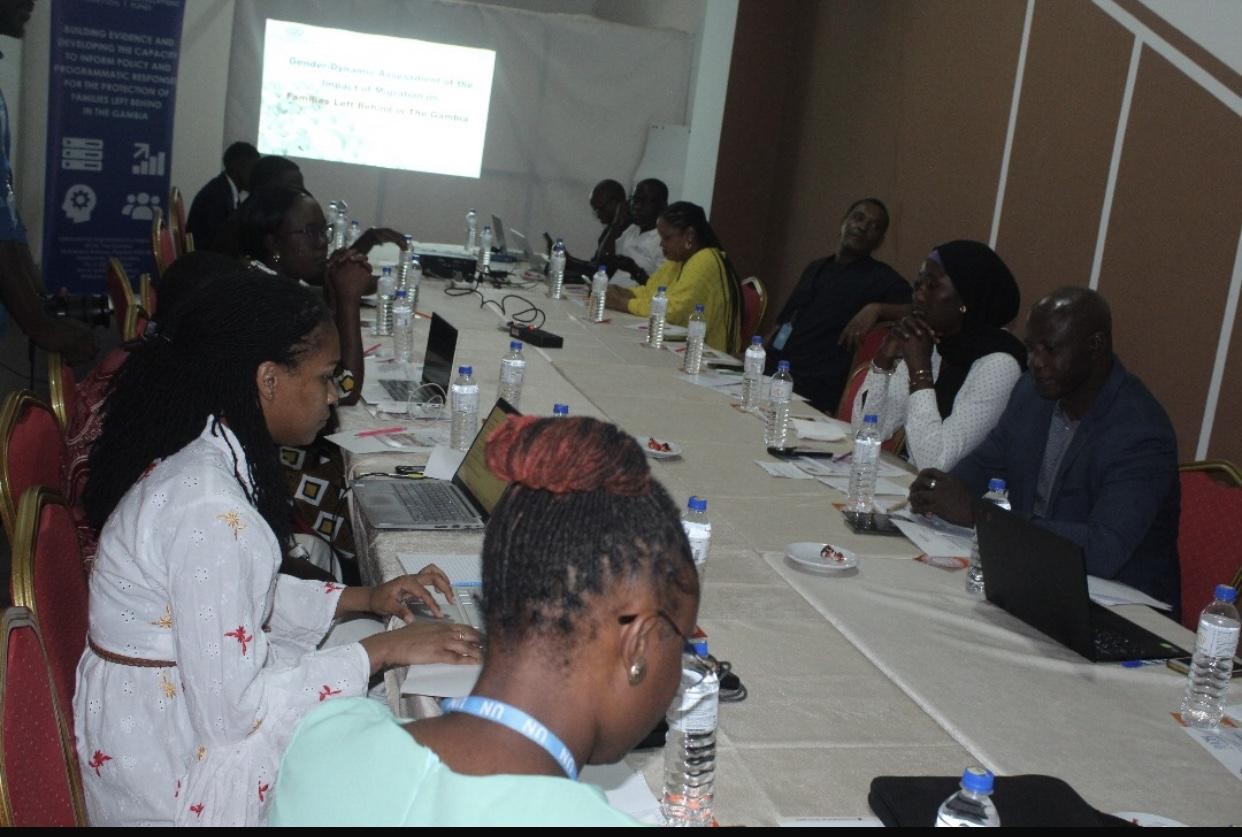The Ministry of the Interior in partnership with the International Organisation for Migration (IOM) and other relevant institutions, on Wednesday, 27th of November, 2024, conducted a workshop on Gender-Dynamic Assessment of the Impact of Migration of Families Left Behind (FLB) in The Gambia. This event was held at Bakadagi Hotel, Kololi.
Migration has reshaped community structures in The Gambia, with families left behind often relying more heavily on extended family networks and community support systems. This workshop is convened after a series of assessments both at the regional and national levels where gaps have been identified in these systems, particularly in providing gender-sensitive support.
Delivering a speech on behalf of the Honourable Minister of the Interior, Abdoulie Sanyang, the Deputy Permanent Secretary Mr Abraham K Mendy, began by recognising the efforts of the International Organisation for Migration for complementing the efforts of the Government of The Gambia, and all the partners in migration.
He noted the impact that migration has on the families left behind. He observed that it affects mainly women, the elderly and children.
“Disrupted family life can lead to poor diets and increased psychological problems. Migration may reduce incentives for education when perceived future returns to education are low because of expectations of migration's negative impact,” the DPS asserted.
He went on to make reference to a September 2024 report detailing the findings of a comprehensive study on the socio-economic impact of migration on families left behind in The Gambia, focusing particularly on gender-sensitive issues. The study reveals that women left behind by migrating family members often experience increased economic responsibilities, taking on both traditional and non-traditional roles.
DPS Mendy underscored the significance of strengthening community support systems, noting that the implementation of programmes that empower women economically would provide parenting support and enhance educational resources for children.
He equally noted the essence of youth empowerment through entrepreneurship and vocational skill acquisition. This, he said will go a long way towards stemming the tide of youth irregular migration in The Gambia.
Mr Siaka Marong, Principal Gender Officer at the Ministry of Gender, Children and Social Welfare, delivering a speech on behalf of the Permanent Secretary, underscored the importance of the initiative, and its relevance to the national plan of action for the protection of women and children’s rights, particularly in addressing the impact of migration on families left behind.
“The impact of migration on families, particularly women and children, is multifaceted. Families left behind often experience economic, emotional, and social challenges, with women shouldering increased responsibilities and children being exposed to risks such as neglect or abuse.
“This project has helped us better understand these dynamics, enabling us to develop targeted strategies to address them and uphold the rights of the affected individuals,” Mr Marong elucidated.
He thanked IOM Gambia, the Ministry of the Interior and other stakeholders for their unwavering support, commitment and contributions.
Reported by Bubacarr Gaye







